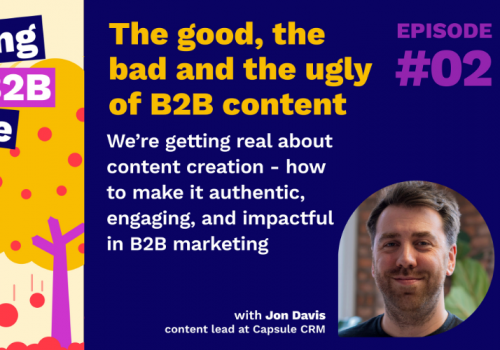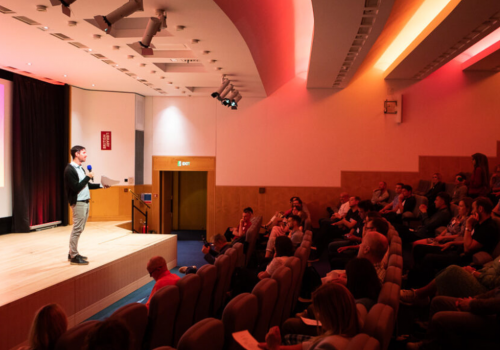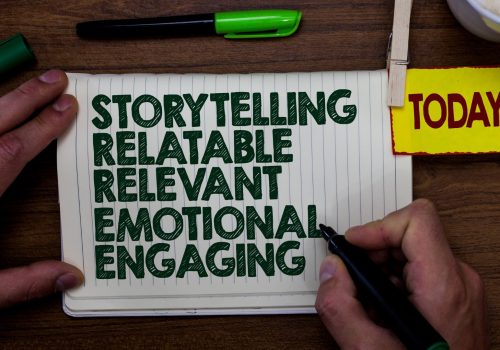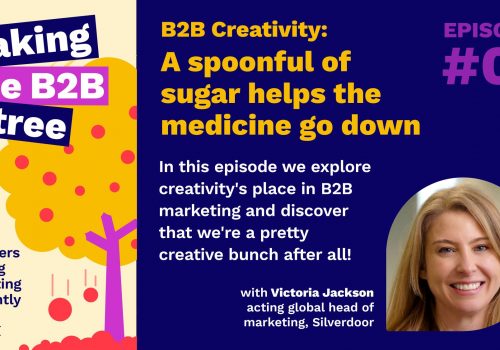If you’re a B2B marketer working with HR solution providers, your challenge goes beyond capturing attention; it’s about earning trust. HR professionals are navigating some of the most complex workplace challenges: evolving compliance demands, hybrid working tensions, wellbeing pressures, and the drive to build inclusive, values-led cultures. They’re time-poor, emotionally invested, and increasingly selective about who they engage with. At the same time, they’re being bombarded with AI-generated blogs, templated sales emails, and generic campaigns. As content volume rises, its impact is declining. The result? A widening trust gap.
HR audiences aren’t just ignoring content, they’re actively questioning it. They’re looking for substance over spin, relevance over reach, and empathy over efficiency. Messaging that doesn’t feel real will fail to resonate. For B2B marketers, this demands a strategic shift: one that places being real, relevant, and meaningful at the heart of every communication. To explore this further, we spoke to Stephen Cloves, HR Consultant at LinkedHR, who brings over two decades of frontline HR experience and provides support at all levels to SME business. As he puts it: “People aren’t just ignoring your message. They’re questioning whether you understand their world at all.”

Why B2B marketers must earn trust in HR communications
HR solution providers operate in a uniquely sensitive space. Their products and services touch on people, culture, wellbeing, and compliance. That means the bar for trust is higher and the consequences of getting it wrong are greater. But trust is fragile. And right now, it’s under pressure from all sides. One of the biggest culprits? The rise of AI-generated content.
Stephen shared a telling example from the recruitment world. “We’re seeing more and more CVs that appear to be generated by AI, often based directly on job adverts. The result is documents that lack personality and feel disconnected from the individual behind them. They leave out the stuff that matters, the bit at the bottom that says, ‘I run my daughter’s football team’ or ‘I’m a season ticket holder at my local club.’ That’s the stuff that tells me who you are.”
For marketers, this highlights the risk of overly polished messaging; it may look professional, but it can feel impersonal. When content becomes formulaic, it loses the qualities that make it relatable. And in HR, where decisions are rooted in people rather than processes, that lack of authenticity can be a dealbreaker. This goes beyond tone; it’s about whether your messaging reflects genuine understanding. Without depth, empathy or relevance, it doesn’t just miss the mark, it risks undermining trust. Therefore, the challenge isn’t simply about being seen, it’s about being believed.
The issue goes beyond AI. Misinformation is another growing concern. Whether it’s misquoted legislation, oversimplified DEI narratives, or sensationalised wellbeing stats, the result is the same: confusion, fear, and disengagement. “I’ve had people quote Australian law at me when we’re clearly talking about UK employment,” Stephen noted. “It’s dangerous.” HR professionals are trained to spot inconsistencies. They’re cautious by nature, and rightly so. When messaging feels off; whether it’s too generic, too salesy, or simply inaccurate; they don’t just ignore it. They start to doubt whether the brand behind it really grasps the realities they face.
What’s the fix?
The challenges facing HR marketers aren’t going away. AI will continue to shape how content is created. Misinformation will still circulate. And audiences will remain cautious. But the solution isn’t to retreat from bold messaging or new tools. It’s to use them with more intention. To create communications that feel grounded, human and credible. That’s where the principles of being real, relevant and meaningful come in. Not as a checklist, but as a strategic lens for how we engage HR audiences to close the trust gap.
1. Be real: say what you mean and mean what you say
Authenticity is more than a buzzword. It is a necessity. HR audiences are trained to read between the lines. They navigate complexity every day, so when messaging feels overly polished or idealised, it raises red flags. Stephen put it simply: “People appreciate when the story isn’t always a happy ending. It’s about what you learned and how you grew.” That kind of honesty builds trust. It shows you are not just aware of the challenges HR professionals face. You respect them enough to be transparent. Being real means writing with warmth and clarity, sharing lessons as well as successes, and embracing nuance over neat narratives. It is not about being perfect. It is about being credible.
2. Be relevant: speak to their world, not yours
One of the most frequent missteps in B2B marketing is confusing visibility with value. Just because a brand is well-known does not mean its story will resonate. HR professionals want to see that you understand their reality. That you have tackled challenges that mirror their own. As Stephen said, “I get people telling me how they created a solution for Coca-Cola. None of my clients are Coca-Cola.”
It is a simple point, but one that is often overlooked. Relevance means showing that you have solved problems like theirs, for organisations that look and feel familiar. It means proving that your solution works not just in theory, but in practice, for businesses that share their challenges. Being relevant means using examples that reflect your audience’s size, sector and priorities. It means avoiding name-dropping unless it adds genuine value. And it means tailoring your message to the moment, not just repeating what worked elsewhere.
3. Be meaningful: make it matter
For B2B marketers in the HR sector, being meaningful means creating communications that reflect what HR professionals genuinely care about. It is not just about delivering information. It is about showing that you understand the emotional and cultural dynamics that shape their decisions.
HR professionals often work in environments where recognition, fairness and visibility are deeply felt but not always openly discussed. When marketing acknowledges these undercurrents, whether through the tone of a campaign, the choice of examples or the way a message is framed, it becomes more than promotional. It becomes personal.
Meaningful marketing connects when it reflects lived experience. That might be through a story that highlights the impact of a solution on frontline staff, or a message that recognises the emotional weight of HR decision-making. It is about empathy, clarity and relevance. When your communications show that you understand what matters to HR professionals, they are far more likely to engage, trust and respond.
Final thoughts: there’s no shortcut to trust
Building trust with HR professionals is not something that happens overnight. It takes time, consistency and a genuine understanding of the challenges your audience faces. The first step is being honest about where your messaging might be falling short. Sometimes automation, assumptions or a focus on features over people can get in the way of real connection.
Moving forward means choosing to communicate differently. It means creating campaigns that reflect the real pressures and priorities of HR teams. It means showing that your brand understands their world and is committed to helping them make a difference. Trust is not something you can claim. It is something you earn through clarity, relevance and empathy. When your communications reflect what matters most to HR professionals, they are taken seriously and remembered, helping your HR solution stand out.
Want to explore how your HR solution can build trust through real, relevant and meaningful communications? Visit: https://skoutpr.com/sectors/human-resources/.












